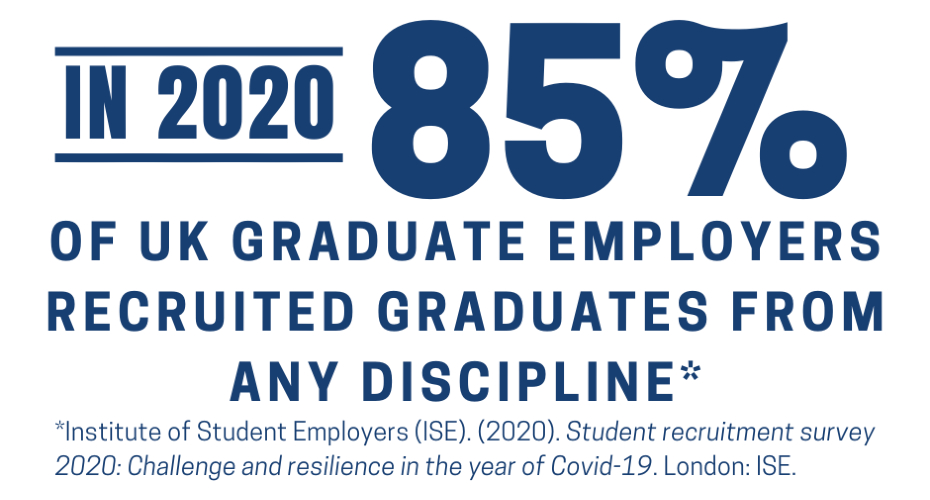.jpg)
Benjamin Woods, MPhys Physics (2015)
'Although I am very much a physicist at heart, I love the design and thought processes that go into making code.'
Solution Architect, 10Be5 Limited

What can I do with a degree in Physics and Astronomy?
The below offers a selection of the destinations University of Exeter graduates from Physics and Astronomy have gone on to. The information below is not exhaustive, however it does highlight the range of job and further study options available to you after your studies.
If you would like to learn more about any of the jobs listed below you may wish to browse the job profiles on the Prospects website.
Careers with a degree in Physics and Astronomy
Recent Exeter Physics and Astronomy graduates have entered a wide range of careers. Some recent examples include:
- Engineering professionals
- IT business analysts, architects and systems designers
- IT quality and testing professionals
- Information technology professionals
- Programmers and software development professionals
- IT user support technicians
- Cyber security professionals
- Financial accounts managers
- Taxation experts
- Physical scientists
- Chartered and certified accountants
- Actuaries, economists and statisticians
- Teaching professionals
Many employers accept applications from graduates with any degree subject, so don't restrict your thinking to the jobs listed above.
Other resources:
- Employment sector pages
- Panopto - Physics and Astronomy students can explore their career options via this interactive webcast video.
- Prospects to find out more about job profiles
- Graduate Outcomes Data to do a deep dive into the data on what Physics and Astronomy graduates do after their degree
- LinkedIn Exeter Physics and Astronomy alumni tool (you will need to be logged in to LinkedIn to access this functionality)
* Data taken from aggregating the responses from full-time, first degree, UK domiciled students who completed 2017/18 and 2018/19 Graduate Outcomes surveys (ordered from most popular to least).
Employers of Exeter alumni with a degree in Physics and Astronomy
Recent Exeter Physics and Astronomy graduates have entered a wide range of careers. Some recent examples include:*
- Acturis
- Alacrity Foundation
- Atkins
- BAE Systems
- BBC
- BP
- Bulb
- Centrica
- Deloitte
- Hargreaves Lansdown
- Hewlett Packard
- Jersey Telecoms
- KPMG
- Kubrick Group
- Meritec
- Met Office
- Nuffield Health
- O2 Telefonica
- Santander
- Siemens
Other resources:
- LinkedIn Exeter Physics and Astronomy alumni tool (you will need to be logged in to LinkedIn to access this functionality)
* Data taken from aggregating the responses from full-time, first degree, UK domiciled students who completed 2017/18 and 2018/19 Graduate Outcomes surveys.
Skills
An Exeter Physics and Astronomy degree will arm you with some great employability skills including:
- Demonstrate knowledge and understanding of the most fundamental physical laws and principles, and competence in the application of these principles to diverse areas of physics
- Solve problems in physics using appropriate mathematical tools. Students should be able to identify the relevant physical principles and make approximations necessary to obtain solutions
- Use mathematical techniques and analysis to model physical behaviour
- Execute and analyse critically the results of an experiment or investigation and draw valid conclusions
- Effectively use appropriate IT packages/systems for the analysis of data and the retrieval of appropriate information
- Soundly use laboratory apparatus and techniques
Further Study
Around 41% of Exeter graduates in Physics and Astronomy go on to pursue further study within 15 months of completing their undergraduate degree. Some recent progression routes include:
- MPh Particle Physics
- MSc Advanced Computer Science
- MSc Advanced Mathematics
- MSc Applied Data Science and Statistics
- MSc Computer Animations and Visual Affects
- MSc Data Science with Artificial Intelligence
- MSc Fusion Energy
- MSc Materials Engineering
- MSc Mechanical Engineering
- MSc Particles, Strings and Cosmology
- MSc Physics
- MSc Renewable Energy Engineering
- MSc Theoretical Physics
- PGCE Physics Secondary
- PhD Physics
- PhD Physics and Astronomy
- PhD Physics/Engineering (CDT)
Some went on to study other degrees including:
- MSc Business Analytics
- MSc Entrepreneurship and Innovation Management
- MSc Management
Useful resources:
- Find a Masters
- Masters Compare
- Masters Portal
- Prospects
- University of Exeter PG Study
- LinkedIn Exeter Physics and Astronomy alumni tool (you will need to be logged in to LinkedIn to access this functionality)
* Data taken from aggregating the responses from full-time, first degree, UK domiciled students who completed 2017/18 and 2018/19 Graduate Outcomes surveys.
**Individual course names were taken from the University of Exeter's Career Destination survey (2018/19 & 2019/20) as this information is not collected within the Graduate Outcomes survey.
